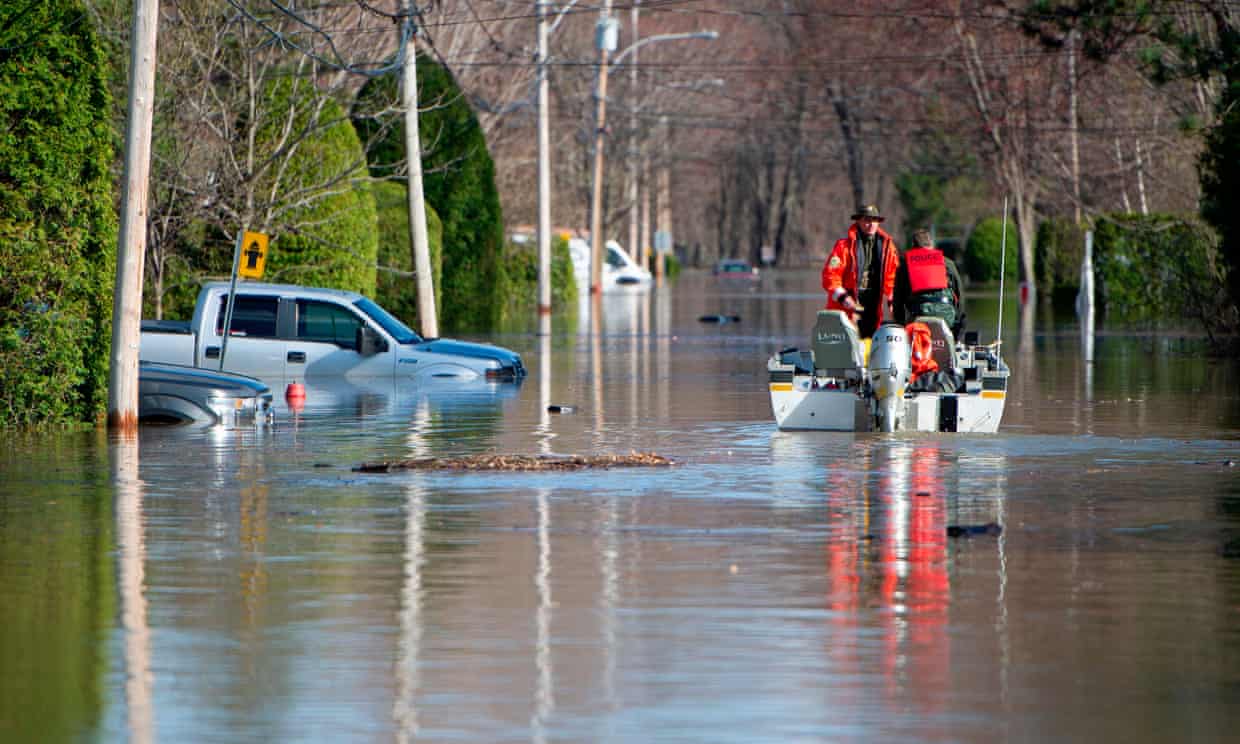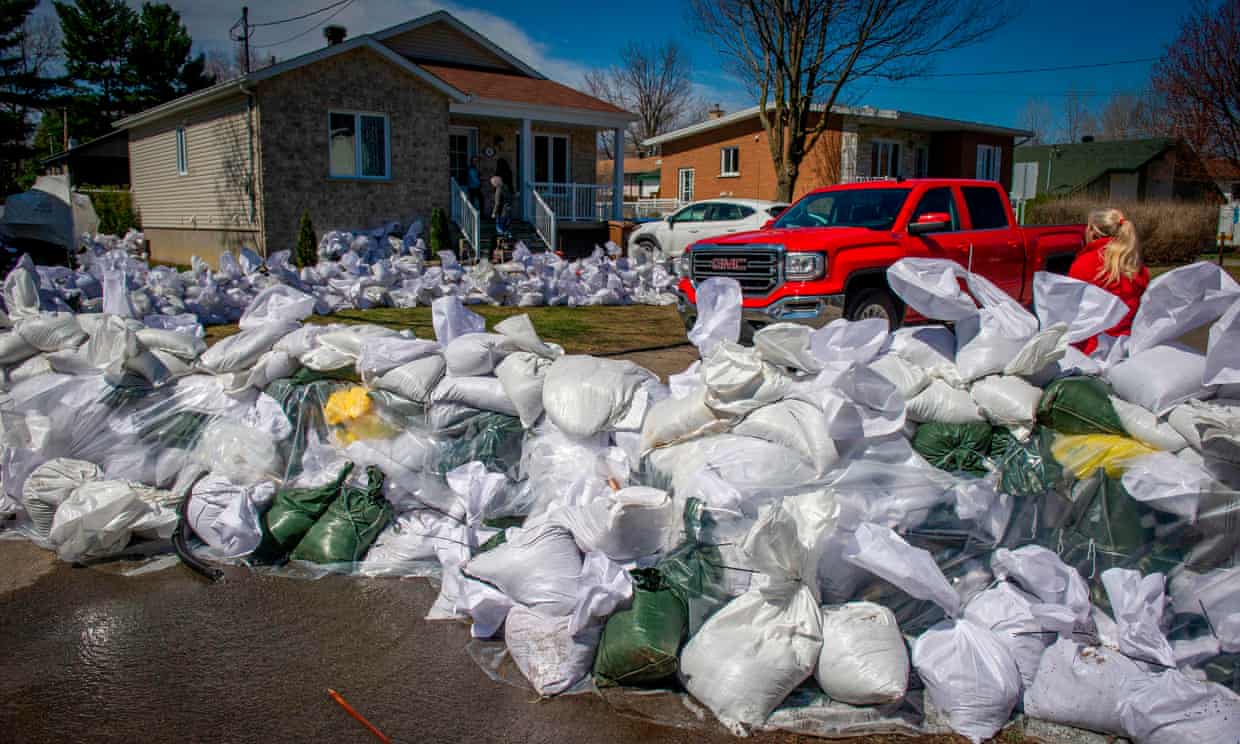
Canada: extreme floods show climate change effects first hand as experts warn of further extreme weather events.
Thousands are evacuated from eastern Canada as Justin Trudeau admits urgent action necessary to improve climate preparedness.
News footage showed people boating where they once walked, homes and cars filled with muddy water, volunteers searching for lost pets. Thousands of people in eastern Canada have been forced from their homes as heavy rains and meltwater cause unprecedented flood evacuations.
One of the worst-hit areas was a Montreal suburb where more than 6,000 people were evacuated after a dike burst on Sunday. A further 3,000 people were evacuated in other parts of Quebec, and in Ontario and New Brunswick, hundreds more are waiting out the floods in hotels and shelters.
“This year’s flooding is very extreme,” said Ursule Boyer-Villemaire, an associate professor at the Université du Québec à Montréal who specializes in disaster management and climate resilience planning.
Climate change means that catastrophic flooding will only become more common, but experts say the events of the past week highlight the fact that Canada has still not done enough to prepare for such disasters.
This is not the first time Quebec has seen large-scale flooding: in 2017, Quebec rivers reached similar levels.
The fact that two floods occurred so close together has climate preparedness experts concerned.
Rapid temperature increases in spring and huge variations in the amount of precipitation, two factors in the flooding, are related to climate change, said Laura Coristine, a biologist at the University of British Columbia.

But Canada has done little to prepare for flooding that is likely to become even more common as the planet continues to warm, she said. “Responding to disaster is going to be a lot more expensive than being proactive in vulnerable sites.”
Ontario’s premier, Doug Ford, whose government has fought hard against the imposition of a country-wide carbon tax aimed at curbing emissions, toured flooded areas near the Ottawa River on Friday night. According to the Canadian Press, Ford did not explicitly mention climate change but did say “something is going on and we have to be conscious of it”




No comments:
Post a Comment